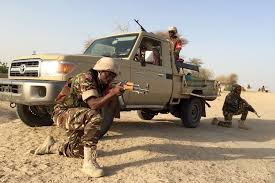In the relentless fight against insurgency, the Nigerian military has showcased remarkable resolve, confronting groups like Boko Haram and armed bandits with significant success in safeguarding citizens and reclaiming territories. However, the persistence of civilian casualties in military airstrikes has sparked growing concern. Are these tragic incidents inevitable collateral damage, or do they point to deeper systemic issues within Nigeria’s defense strategies?
Nigeria’s military deserves recognition for its achievements. Their efforts have led to the recapture of territories once under insurgent control, restored relative stability in conflict-prone areas, and disrupted criminal networks across the country. Modern tools like drones and the deployment of A-29 Super Tucano aircraft underscore the military’s evolving capacity in warfare. Yet, despite these advances, the human cost of their operations—particularly civilian lives lost to errant airstrikes—remains a dark shadow over their accomplishments.
The January 11 airstrike in Zamfara’s Tungar Kara community, which killed at least 16 civilians, is just the latest in a series of incidents. Similar tragedies include the 2017 bombing of Rann in Borno State that claimed over 115 lives, the 2022 Mutumji village strike killing 64 civilians, and the 2023 Doma attack in Nasarawa State that resulted in more than 40 deaths. These incidents reveal a troubling pattern, with Amnesty International estimating over 400 civilian deaths from military air raids since 2017.
Despite the official narrative that these incidents are “mistakes,” the frequency of such errors raises questions about the military’s operational precision and intelligence reliability. Civilian deaths undermine trust, sparking outrage and fear among communities already vulnerable to insurgent threats.
Read Also: CBN launches new account types for Nigerians abroad to boost remittances, investment
The military’s challenges in distinguishing combatants from civilians are not unique to Nigeria. Insurgents often embed themselves within local populations, using them as shields. However, security experts, including Chidi Omeje, argue that better coordination between ground forces and air operations is essential to minimize collateral damage. The recurring missteps suggest gaps in intelligence gathering, operational planning, and real-time decision-making.
Human rights organizations like Amnesty International and Human Rights Watch have consistently called for transparent investigations and accountability. Amnesty International’s Isa Sanusi recently stated that the lack of independent inquiries into these incidents enables a culture of impunity, urging President Bola Tinubu’s administration to take decisive action. Victims’ families deserve justice, and Nigeria must demonstrate a commitment to human rights by holding those responsible accountable.
The international community has also raised eyebrows. While countries like the United States provide military aid and advanced weaponry to Nigeria, they have expressed concerns over its application. Representative Sara Jacobs has called for stricter oversight to ensure Nigerian forces adhere to international humanitarian law. As global partners scrutinize Nigeria’s military operations, there’s an opportunity to adopt best practices that prioritize civilian safety without compromising the fight against insurgency.
For Nigeria to truly balance its military successes with civilian protection, reforms are imperative. Enhanced intelligence operations, improved air-ground coordination, and the integration of precision technology must take center stage. More importantly, a cultural shift within the military that values civilian protection as much as operational success is crucial. Independent oversight mechanisms can further reinforce accountability and transparency.
As the nation battles to secure its future, it must ensure that military gains do not come at the cost of innocent lives. The world is watching, and so are Nigerians. The ability to safeguard citizens while combating insurgency will ultimately determine the legacy of Nigeria’s military efforts.






